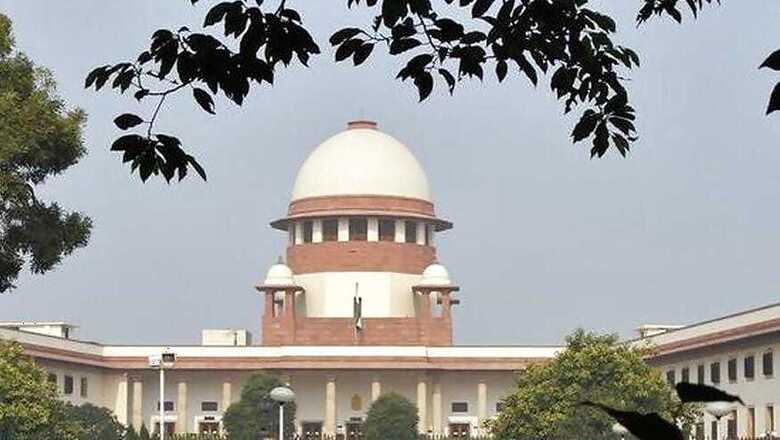
views
New Delhi: Judges cannot run a government and ask it to do "miracles", Attorney General K K Venugopal on Wednesday told the Supreme Court while opposing fresh pleas being made by NGO 'Swaraj Abhiyan' in a PIL for relief measures in drought-hit states.
A bench, headed by Justice M B Lokur, directed the Centre to set up state food commissions, as mandated under the National Food Security Act (NFSA), 2013, even in the states not hit by drought.
Venugopal took strongly opposed the submissions of Prashant Bhushan, representing the NGO run by activist Yogendra Yadav, and termed them as fresh ones.
"New submissions are being made every time. The issue (PIL) cannot go on forever. We have filed a detailed affidavit stating all steps are being taken by us. There has to be an end. Your lordships cannot run the government. We cannot be asked to do miracles as this is such an enormous task. We are trying to persuade the state governments to do the best thing possible. The government is concerned with the issue and is putting the best way forward. But grant us some time, preferably six months," Venugopal said.
He said that if fresh issues were raised, then there would be no end to the grievances and moreover, the Centre was looking into the issues and has written numerous letters to states concerned.
The bench, also comprising Justice N V Ramana, then told the attorney general that the petition would be confined to only three issues -- delay in payment of wages and compensation, reduction in person days under the Mahatma Gandhi National Rural Employment Guarantee Scheme and absence of social audit.
Ordering setting up of state food commissions, the bench said the provisions under the NFSA provided for such commissions in all the states and Union territories (UTs).
"Although this writ petition is confined to 10 states, we have brought it to the notice of the attorney general that since we are dealing with a parliamentary statute namely the National Food Security Act, 2013, it will be appropriate if the provisions of the Act are faithfully implemented in all the states and the Union territories."
"The attorney general has assured us that the matter will be taken up with due earnestness and the provisions of the Act will be implemented in all the states and the UTs. All efforts will be made by the central government in this regard," the bench said.
During the proceedings, the chief secretaries of various states were present in the courtroom. The judges were informed that state food commissions have been set up in Madhya Pradesh, Maharashtra, Andhra Pradesh, Bihar and Karnataka.
With regard to constitution of the commission in Haryana, the counsel, appearing for the state, told the bench that the matter was pending in the Punjab and Haryana High Court.
The top court also asked the states to implement other provisions of the Act including appointment of vigilance committees and the district grievance officers and conduct of social audits of government ration shops.
The court made the observations when Bhushan sought relief measures for farmers in the drought-hit states under the statute. Bhushan told the court that the implementation of the NFSA still remained a major challenge and adequate work under the MNREGA was not being given by the state governments.
He said there has been a one-third cut in the protected labour budget under the MNREGA and almost 67 per cent of the budget has already been exhausted by the Centre in the initial four months of this financial year. The matter would be hear again on December 5.
The apex court had on March 22 summoned the Cchief secretaries of ten states for failure to implement the NFSA. It had said that with regard to the statute, the state governments have to appoint the food commissions and could not give a go by to the law enacted by Parliament.
The court had also impleaded the Reserve Bank of India as a party to the case as the petition had said that the guidelines issued for loan waiver and loan restructuring of farmers of drought-hit areas were not being implemented by the banks.
The PIL had claimed that parts of 12 states-- Uttar Pradesh, Karnataka, Madhya Pradesh, Andhra Pradesh, Telangana, Maharashtra, Gujarat, Odisha, Jharkhand, Bihar, Haryana and Chhattisgarh -- were hit by drought and the authorities were not providing adequate relief.
The petitioners had claimed that the directions issued by the court in the matter were not complied with by these states.




















Comments
0 comment